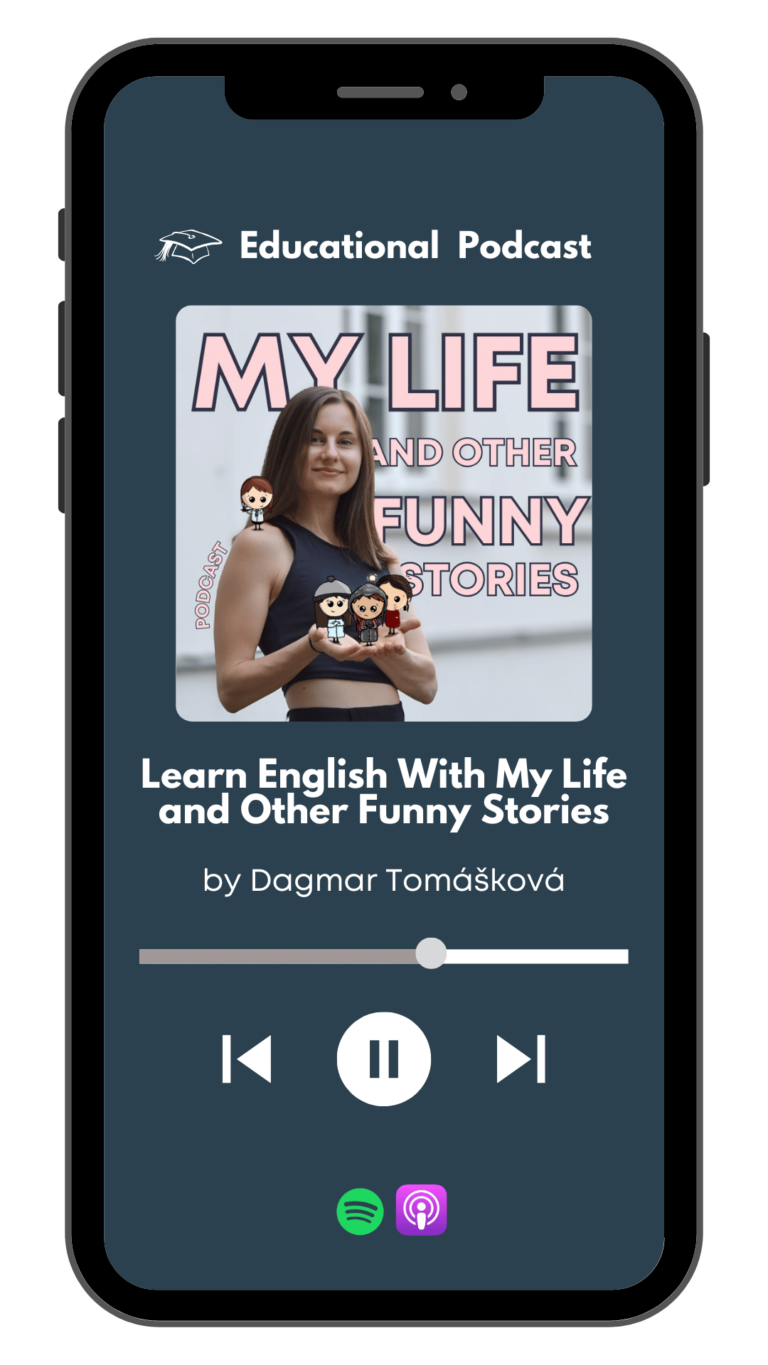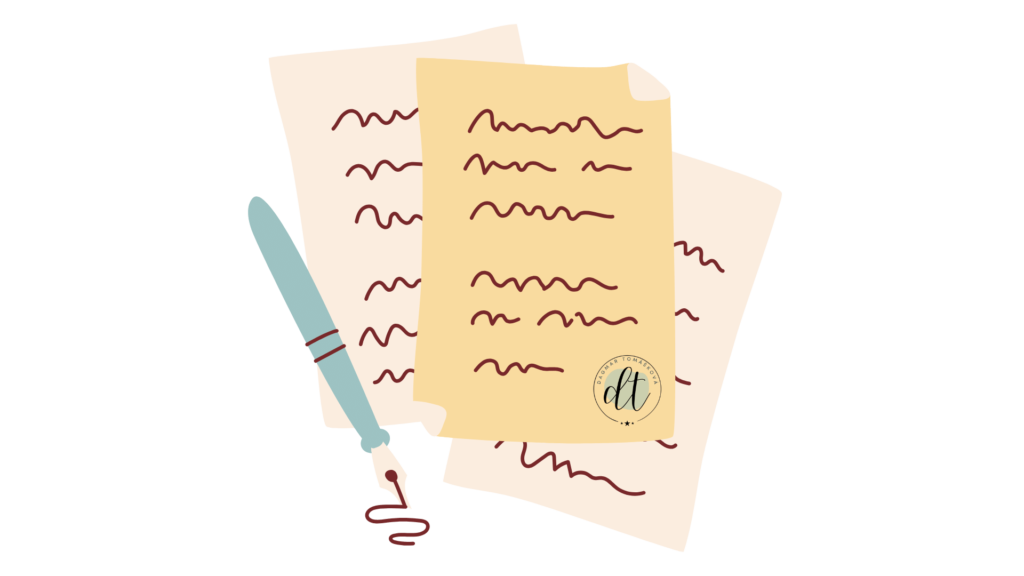
Ep.91: 8 Mistakes To Avoid If You Are Preparing For FCE Or CAE Cambridge Exam
Today’s episode is especially for those of you who are preparing for the Cambridge exams like FCE or CAE.Because I am going to talk about common mistakes I see students make all the time. And trust me, I’ve seen a lot of them because I’ve helped so many students prepare over the years. Today we’ll go over them together, and I’ll try to explain why they matter and what you can do instead. Think of this as a little coaching session with me.

LISTEN TO THE EPISODE HERE:


WRITTEN TRANSCRIPTION OF THE PODCAST
Hello and welcome to my podcast My Life and Other Funny Stories. My name is Dagmar Tomášková, I’m an English tutor and coach, and I created this podcast for English students who want to improve their oral comprehension. As always, you can find the transcript of this episode and a vocabulary list in the notes of the podcast.
Today’s episode is especially for those of you who are preparing for the Cambridge exams like FCE or CAE.Because I am going to talk about common mistakes I see students make all the time. And trust me, I’ve seen a lot of them because I’ve helped so many students prepare over the years. Today we’ll go over them together, and I’ll try to explain why they matter and what you can do instead. Think of this as a little coaching session with me.
So let’s get into it.
No.1
The first mistake is focusing only on grammar and vocabulary and ignoring the structure of the exam itself. This is very common because we often feel like more grammar and more words must automatically mean better results. But the exam isn’t just about what you know, it’s about how you use it in the format of the exam. For example, in the Reading and Use of English part, there are different tasks and each task tests something specific like collocations, phrasal verbs, or word formation. And in the Writing paper, you always have Part 1 which is compulsory and then Part 2 where you choose from different options. If you don’t know how the exam is built, you might run out of time or choose the wrong approach. For example it is always good to know your strengths and weaknesses so you don’t lose time sitting over a task where you lose the most points. So my advice is to get familiar with the format early on. Print out past papers, look at the instructions, see how many questions there are, how long you have for each part, and practise under timed conditions so you feel comfortable on the exam day. This is how I practice with my students. I always remind them the time limit because if you can do the exam in your time but not in the exam time, it doesn’t matter how good you are.
No.2:
The second mistake is not reading the question carefully enough, especially in Writing and Speaking. Sometimes students are so eager to write or speak that they skip over the details. But these details matter. In the Writing paper, the question usually tells you who you are writing to and why. If it says “Write an email to your friend inviting them to an event,” don’t write a formal letter with “Dear Sir or Madam.” And in Speaking, if the examiner asks “Why do people enjoy sports?” you have to answer the question. So for example you can’t answer – people enjoy playing football, you have to say WHY. The details in the task tell you the tone, style, and purpose of your answer. So when you get your question, take a moment to underline or circle keywords like who you’re writing to, why you’re writing, and what kind of text it should be. And read it twice. This is something I was reminding myself when I went to write any test in my life. I am always used to working so fast that my brain fills in the gaps when I read quickly. But unfortunately, it happened to me many times that I read the question incorrectly and lost points because of that.
No.3
The third mistake is starting to write immediately without planning. I completely understand why it happens. The clock is ticking, you’re nervous, and your brain is screaming “Just start!” But if you don’t plan, your writing can become messy, repetitive.. Spend two to three minutes making a quick plan. Write your outline. It is really important. Write down your introduction, two or three main points, and a conclusion. Think of some linking words you might use. This short plan saves you time later because you know exactly what to write next and you won’t have to rewrite the whole thing when you eventually find out, that your structure sucks. And if you finish early, you can always add details.
No.4
The fourth mistake is overusing simple adjectives like “very good” or “very important.” At B2 or C1 level, the examiners want to see a wider range of vocabulary. Instead of “very good,” you could say “excellent” or “outstanding.” Instead of “very interesting,” try “fascinating” or “captivating.” These words help your writing and speaking sound more advanced and also show that you’ve made the effort to learn more precise language. So when you’re revising, make a list of your favourite stronger adjectives and try to use them naturally. I did exactly that and I even trained myself to use idioms that can be easily weasled into a conversation.
No.5
The fifth mistake is forgetting to use linking words or using them badly. Linking words are your best friends in writing and speaking because they help your ideas connect smoothly. Imagine reading a text with no linking words; it feels jumpy and hard to follow. Words like “however,” “on the other hand,” “moreover,” “consequently,” and “for instance” show the examiner that you can organise your thoughts clearly. But be careful not to overuse them or put them in the wrong place. But adding linking words is something I do almost every time I check my students’ practice writing.
No.6
The sixth mistake is speaking too little or too much during the Speaking test. I know it can feel scary, especially with an examiner watching and a timer running, but remember the examiners can’t give you points for what you don’t say. Short answers like “Yes, I agree” or “No, I don’t think so” don’t show your range of English. Try to say more. How? You can always tag “Why” to the end of the sentence in your mind. Yes I agree. Why? And then the answer might sound like: Yes, I agree because I think people today really need to relax after work” or “I don’t completely agree because in my opinion…” Even a few extra words show more vocabulary and grammar. On the other hand, in the cooperative task, don’t overdo it or don’t think too much in silence. You need to give space to the other candidate. If you want to say something but can’t come up with any words and the seconds are just passing by, say something like “I lost my words, is there anything you would like to add?” so your partner can take over.
No.7:
The seventh mistake is not reviewing your writing for small mistakes. When you finish writing, it’s tempting to put your pen down and relax. But often, you can catch and correct little things like missing articles, forgetting an -s on third person verbs, or spelling mistakes. These small corrections can really help your score. Try to save the last two or three minutes to read your work from start to finish. Also, if you have someone, who gives you feedback, go thoroughly through it. I don’t want my students to just nod when I tell them what they can improve but very often, I let them rewrite the whole text without their mistakes.
No.8
The eight mistake is thinking the exam is a test of your opinions or knowledge instead of your English. You don’t need to be an expert on politics, art, or technology. What the examiners want is to see how you use English to express your thoughts, explain your reasons, give examples, and keep the conversation going. So even if you get a topic you don’t know much about, focus on showing good grammar, vocabulary, and structure rather than giving the “perfect” opinion. You can even talk about things, memories and experiences that are not real. If they ask you if you like something, you can say yes and explain why if it sounds easier for you. Or if they ask you about your plans for the weekend and you don’t have any, just make them up! And come up with something interesting. There won’t be any police officers standing behind the doors to take you to prison for making things up.
And here’s a little bonus tip: remember that preparing for the exam is a journey, and you don’t have to do it alone. Practising with a teacher, coach, or study partner helps you see your blind spots and keeps you motivated. It’s also more fun. If it sounds like something for you, write me a message. I helped many students achieve their goals and I can help you!
I hope these tips help you feel more confident and give you some new ideas for your study routine. If you’d like, I can also record another episode where we focus only on writing, speaking, or Use of English. Let me know what would help you the most.
Thank you so much for listening. If you liked this episode, please leave a five-star rating and share it with your friends. And don’t forget, you can find the transcript and vocabulary list in the notes of the podcast. See you next time!

VOCABULARY LIST
phrasal verbs – frázová slovesa
word formation – tvoření slov
compulsory – povinný
approach – přístup
familiar – obeznámený, seznámený
timed conditions – časový limit, podmínky s omezeným časem
eager – nedočkavý, horlivý
underline – podtrhnout
messy – chaotický
precise language – přesný, výstižný jazyk
cooperative task – úkol, kde spolupracujete s jiným kandidátem
come up with – přijít s něčím, vymyslet
blind spots – slepá místa, slabiny, které si sami neuvědomujeme
thoroughly – důkladně
study routine – studijní rutina
keep the conversation going – udržet konverzaci
achieve – dosáhnout